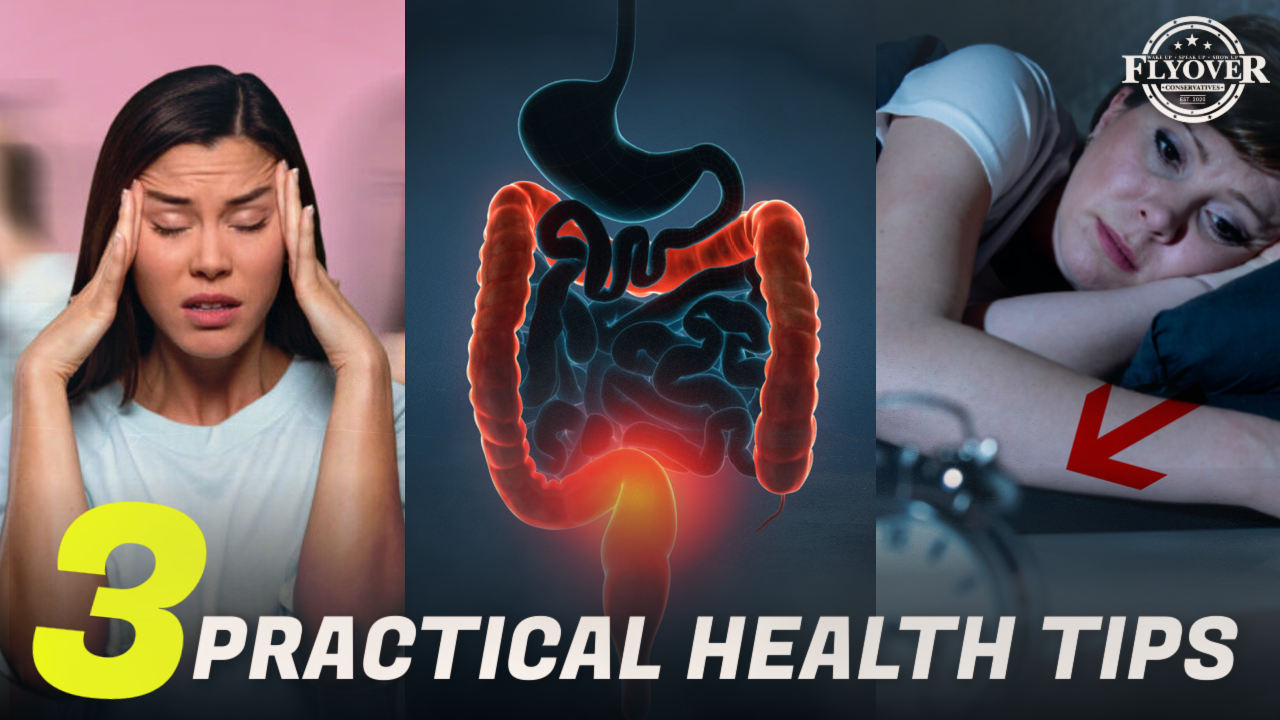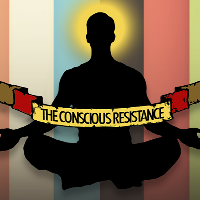The Surprising Villain in Your Diet
New research challenges traditional views on this common compound and its impact on gut health, suggesting that what you thought was healthy could be harming you.
https://articles.mercola.com/sites/articles/archive/2024/04/21/sugar-microbiome-endotoxin.aspx
Circles
Posts
Here are 3+ [ N A T U R A L ] Tips to Stay Healthy - Inflammation & Diet, Cortisol for Sleep, Kryptopyrrole - Dr. Troy Spurrill
https://www.brighteon.com/e0bbe5da-1a78-4fe5-862a-0d8ead3dcee5

TO WATCH ALL FLYOVER CONTENT: www.theflyoverapp.com Dr. Troy Spurrill is the founder and CEO of Synapse Center for Health and Healing. He started Synapse over 26 years ago with a vision to bring an integrative approach to healthcare through functional medicine, making Synapse an internationally known center for true health.He received a Bachelor’s of Science in Molecular Biology from the University of Manitoba, and a Doctorate of Chiropractic from Northwestern Health Sciences University. He has extensive training in Functional Neurology, Nutrition, and Applied Kinesiology. Dr. Troy is an author and international lecturer on wellness and brain based healing.Dr. Troy SpurrillWEBSITE: www.officialsynapse.com -------------------------------------------𝗦𝗣𝗢𝗡𝗦𝗢𝗥𝗦 𝗙𝗢𝗥 𝗧𝗢𝗗𝗔𝗬’𝗦 𝗩𝗜𝗗𝗘𝗢► Kirk Elliott PHD - FREE consultation on wealth conservation http://FlyoverGold.com ► My Pillow - save up to 80% off - https://MyPillow.com/Flyover ► Z-Stack - enjoy 5% off - https://flyoverhealth.com ► Redemption Shield - use promo code FLYOVER for 10% off - www.redemptionshield.com ► Prepper Beef - use promo code FLYOVER for 20% off - https://flyovermeat.com Want to help spread the Wake Up • Speak Up • Show Up -https://shop.flyoverconservatives.com/ -------------------------------------------𝗙𝗢𝗟𝗟𝗢𝗪 𝗢𝗨𝗥 𝗦𝗢𝗖𝗜𝗔𝗟 𝗠𝗘𝗗𝗜𝗔 𝗦𝗢 𝗪𝗘 𝗖𝗔𝗡 𝗕𝗘 𝗕𝗘𝗦𝗧 𝗙𝗥𝗜𝗘𝗡𝗗𝗦💬Telegram: https://t.me/FlyoverConservatives 🆇 Twitter: https://twitter.com/FOConservatives 🏘 FBContent Managed by ContentSafe.coCSID: 8a98ef5a9b0d193b
www.brighteon.com
Reverses Cancer: the Vitamin Boost Your Body Craves
This 1925 study is a bombshell. Are many cases of 'cancer' due to the accumulation of these sloughed-off cells in specific organs due to a deficiency in this vitamin? The good news: Adding more of this to your diet can reverse the attack.
https://articles.mercola.com/sites/articles/archive/2024/04/18/fascinating-research-on-vitamin-a.aspx
Videos
On this episode of The Cost of Everything, we take a closer look at the weight loss market globally. People in the West view weight loss different compared to Asian and African countries. Host Christy Ai spoke to Dr. Kelli Rugless about the costs and dangers of obesity and what countries suffer the most. Journalist Patience Wirngo from Cameroon joins the show to discuss what the costliest challenges of obese people in Africa are and how weight loss is perceived in her country.
Nicole Kidman, Justin Timberlake, Angelina Jolie and Zac Efron all munch on crickets, locusts and spiders in order to get their daily dose of protein. On this edition of 360 View, we ask journalist, Josephine Karani, if this new meal option is a Hollywood fad or an attempt to push a new global agenda on the population. Plus, our international correspondent, Roxana Solano, tells us about countries where people eat bugs as a part of their daily diet.
The Conscious Resistance Network presents: The Activation podcast
On this episode of The Activation podcast Derrick Broze interviews Pam Popper, the founder and President of Wellness Forum Health and founder of Make Americans Free Again. Derrick talks with Pam about her efforts to fight COVID19 in the courts via lawsuits, as well as helping communities connect locally.
Pam serves on the Physician’s Steering Committee and the President’s Board for the Physicians’ Committee for Responsible Medicine in Washington D.C. Pam was one of the health care professionals involved in the famed Sacramento Food Bank Project, in which economically disadvantaged people were shown how to reverse their diseases and eliminate medications with diet.
Pam served as part of Dr. T. Colin Campbell’s teaching team at eCornell, teaching part of a certification course on plant-based nutrition. She has been featured in many widely distributed documentaries, including Processed People and Making a Killing and Forks Over Knives, which played in major theaters throughout North America in 2011. She is one of the co-authors of the companion book which was on the New York Times bestseller list for 66 weeks. Her most recent films are Food Choices and The Yoyo Effect. Her most recent books are Food Over Medicine: The Conversation That Can Save Your Life.
Pam is also a public policy expert, and continually works toward changing laws that interfere with patients’ right to choose their health provider and method of care. She has testified in front of legislative committees on numerous occasions, and has testified twice in front of the USDA’s Dietary Guidelines Advisory Committee.
https://drpampopper.com/about-pam/
https://makeamericansfreeagain.com/
Sign up for Derrick Broze’s Holistic Self-Assessment online course: https://www.universityofreason.com/holistic-self-assessment
Circles
Videos
On this episode of The Cost of Everything, we take a closer look at the weight loss market globally. People in the West view weight loss different compared to Asian and African countries. Host Christy Ai spoke to Dr. Kelli Rugless about the costs and dangers of obesity and what countries suffer the most. Journalist Patience Wirngo from Cameroon joins the show to discuss what the costliest challenges of obese people in Africa are and how weight loss is perceived in her country.
Nicole Kidman, Justin Timberlake, Angelina Jolie and Zac Efron all munch on crickets, locusts and spiders in order to get their daily dose of protein. On this edition of 360 View, we ask journalist, Josephine Karani, if this new meal option is a Hollywood fad or an attempt to push a new global agenda on the population. Plus, our international correspondent, Roxana Solano, tells us about countries where people eat bugs as a part of their daily diet.
The Conscious Resistance Network presents: The Activation podcast
On this episode of The Activation podcast Derrick Broze interviews Pam Popper, the founder and President of Wellness Forum Health and founder of Make Americans Free Again. Derrick talks with Pam about her efforts to fight COVID19 in the courts via lawsuits, as well as helping communities connect locally.
Pam serves on the Physician’s Steering Committee and the President’s Board for the Physicians’ Committee for Responsible Medicine in Washington D.C. Pam was one of the health care professionals involved in the famed Sacramento Food Bank Project, in which economically disadvantaged people were shown how to reverse their diseases and eliminate medications with diet.
Pam served as part of Dr. T. Colin Campbell’s teaching team at eCornell, teaching part of a certification course on plant-based nutrition. She has been featured in many widely distributed documentaries, including Processed People and Making a Killing and Forks Over Knives, which played in major theaters throughout North America in 2011. She is one of the co-authors of the companion book which was on the New York Times bestseller list for 66 weeks. Her most recent films are Food Choices and The Yoyo Effect. Her most recent books are Food Over Medicine: The Conversation That Can Save Your Life.
Pam is also a public policy expert, and continually works toward changing laws that interfere with patients’ right to choose their health provider and method of care. She has testified in front of legislative committees on numerous occasions, and has testified twice in front of the USDA’s Dietary Guidelines Advisory Committee.
https://drpampopper.com/about-pam/
https://makeamericansfreeagain.com/
Sign up for Derrick Broze’s Holistic Self-Assessment online course: https://www.universityofreason.com/holistic-self-assessment
Posts
The Surprising Villain in Your Diet
New research challenges traditional views on this common compound and its impact on gut health, suggesting that what you thought was healthy could be harming you.
https://articles.mercola.com/sites/articles/archive/2024/04/21/sugar-microbiome-endotoxin.aspx
Here are 3+ [ N A T U R A L ] Tips to Stay Healthy - Inflammation & Diet, Cortisol for Sleep, Kryptopyrrole - Dr. Troy Spurrill
https://www.brighteon.com/e0bbe5da-1a78-4fe5-862a-0d8ead3dcee5

TO WATCH ALL FLYOVER CONTENT: www.theflyoverapp.com Dr. Troy Spurrill is the founder and CEO of Synapse Center for Health and Healing. He started Synapse over 26 years ago with a vision to bring an integrative approach to healthcare through functional medicine, making Synapse an internationally known center for true health.He received a Bachelor’s of Science in Molecular Biology from the University of Manitoba, and a Doctorate of Chiropractic from Northwestern Health Sciences University. He has extensive training in Functional Neurology, Nutrition, and Applied Kinesiology. Dr. Troy is an author and international lecturer on wellness and brain based healing.Dr. Troy SpurrillWEBSITE: www.officialsynapse.com -------------------------------------------𝗦𝗣𝗢𝗡𝗦𝗢𝗥𝗦 𝗙𝗢𝗥 𝗧𝗢𝗗𝗔𝗬’𝗦 𝗩𝗜𝗗𝗘𝗢► Kirk Elliott PHD - FREE consultation on wealth conservation http://FlyoverGold.com ► My Pillow - save up to 80% off - https://MyPillow.com/Flyover ► Z-Stack - enjoy 5% off - https://flyoverhealth.com ► Redemption Shield - use promo code FLYOVER for 10% off - www.redemptionshield.com ► Prepper Beef - use promo code FLYOVER for 20% off - https://flyovermeat.com Want to help spread the Wake Up • Speak Up • Show Up -https://shop.flyoverconservatives.com/ -------------------------------------------𝗙𝗢𝗟𝗟𝗢𝗪 𝗢𝗨𝗥 𝗦𝗢𝗖𝗜𝗔𝗟 𝗠𝗘𝗗𝗜𝗔 𝗦𝗢 𝗪𝗘 𝗖𝗔𝗡 𝗕𝗘 𝗕𝗘𝗦𝗧 𝗙𝗥𝗜𝗘𝗡𝗗𝗦💬Telegram: https://t.me/FlyoverConservatives 🆇 Twitter: https://twitter.com/FOConservatives 🏘 FBContent Managed by ContentSafe.coCSID: 8a98ef5a9b0d193b
www.brighteon.com
Reverses Cancer: the Vitamin Boost Your Body Craves
This 1925 study is a bombshell. Are many cases of 'cancer' due to the accumulation of these sloughed-off cells in specific organs due to a deficiency in this vitamin? The good news: Adding more of this to your diet can reverse the attack.
https://articles.mercola.com/sites/articles/archive/2024/04/18/fascinating-research-on-vitamin-a.aspx
12 High-Protein Grains to Add to Your Diet
#healthydiet #wellness #goodfood #smartchoice #detox #eatsmart #healthyoption #healthyliving #healthylifestyle
Cong ty TNHH Pest Shop Viet Nam la nha phan phoi thuoc va thiet bi Vat tu diet con trung chinh LON NHAT tai Viet Nam. Pest Shop hoat dong duoi dang KHO HANG tai Ha Noi, TP.HCM , Da Nang va ban online tren toan quoc,
Pest Shop cung cap cac san pham chat luong, bao gom Den bat muoi , den diet con trung , thuoc diet con trung ( Muoi , ruoi , kien , gian , moi , mot , chuot ), may phun con trung, va binh phun ton luu nhap khau.
Pest Shop la cua hang mua ban thuoc diet con trung chinh hang, hieu qua cho moi nha. La dia chi tin cay khi ban gap rac roi ve con trung chuyen ban thuoc diet muoi, ruoi, gian, kien, moi, rep, bo chet... chat luong cao voi gia canh tranh.
Website: https://pestshop.vn/
Map: https://maps.app.goo.gl/rxa71Yw1noLJRj4Q7
Ha Noi : 69 so 229 Nguyen Van linh ,Phuong Phuc Dong , Quan Long Bien, Ha Noi
TP.HCM : 251/11 Duong Go Xoai, Phuong Binh Hung Hoa A, Quan Binh Tan,TP.HCM
Mail: Pestshop.vn@gmail.com
#PestShop #Pestshopthuoccontrung #Pestshopdenbatmuoi #thuoccontrungso1 #thuoccontrung
https://www.facebook.com/PestShop.vn/
https://www.youtube.com/@pestshopvn
https://www.tumblr.com/pestshopvn
https://twitter.com/pestshopvnn
https://www.pinterest.com/pestshopvn1/
https://flipboard.com/@pestshop/pest-shop-9tk8k59py
https://www.reddit.com/user/pestshopvn/
https://ko-fi.com/pestshopvn1#paypalModal
https://www.instapaper.com/p/pestshopvn
https://wakelet.com/@pestshopvn
https://pestshopvn4.wordpress.com/
https://gravatar.com/pestshopvn1












